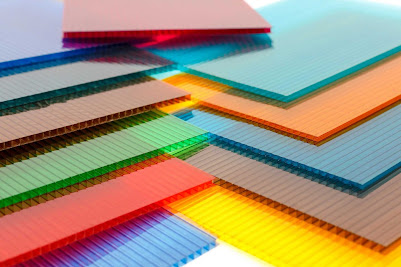In the realm of modern architecture, industrial design, and beyond, polycarbonate sheets have emerged as a versatile and innovative material, revolutionizing the way we approach construction, signage, and various other applications. Singhal Industries Private Limited stands at the forefront of this industry, offering high-quality polycarbonate sheets tailored to diverse needs. In this comprehensive guide, we delve into the world of polycarbonate sheets, exploring their characteristics, applications, pricing factors, and frequently asked questions.
Understanding Polycarbonate Sheets
Polycarbonate sheets represent a modern marvel in the realm of construction materials, offering a combination of remarkable strength, versatility, and optical clarity. Derived from a thermoplastic polymer known as polycarbonate resin, these sheets have gained widespread popularity across various industries due to their myriad benefits and applications. One of the most distinguishing characteristics of PC hollow sheet is their exceptional impact resistance. In fact, polycarbonate is virtually unbreakable, making it an ideal choice for applications where safety and durability are paramount. Unlike traditional materials such as glass, which can shatter upon impact, polycarbonate sheets are capable of withstanding significant force without cracking or fracturing, thus reducing the risk of injury and property damage.
Furthermore, polycarbonate sheets offer outstanding optical clarity, allowing for high levels of light transmission while maintaining structural integrity. This optical clarity makes them a popular choice for applications where visibility and aesthetics are important, such as in skylights, greenhouses, and architectural glazing.
Applications of Polycarbonate Sheets
- Architectural Glazing: Polycarbonate sheets are extensively used in architectural glazing applications, including skylights, canopies, and façades. Their lightweight nature, flexibility, and optical clarity allow architects to create visually stunning structures while maximizing natural light transmission and energy efficiency.
- Signage and Displays: The versatility of polycarbonate sheets extends to signage and display applications, where their durability, weather resistance, and ease of fabrication make them ideal for outdoor signage, illuminated displays, and point-of-purchase fixtures.
- Safety Barriers and Security Glazing: Due to their impact resistance and shatterproof properties, polycarbonate sheets are often employed in safety barriers, protective screens, and security glazing systems, providing enhanced safety and security in various environments.
- Agricultural and Horticultural Applications: In agricultural and horticultural settings, polycarbonate sheets find use in greenhouse construction, crop protection, and livestock shelters. Their UV stability, light diffusion properties, and resistance to harsh weather conditions contribute to optimal growing conditions and crop yields.
- DIY and Home Improvement: Polycarbonate sheets are also popular among DIY enthusiasts and homeowners for applications such as patio covers, pergolas, and privacy screens. Their ease of installation, low maintenance requirements, and availability in various colors and textures make them a preferred choice for enhancing outdoor living spaces.
Factors Affecting Polycarbonate Sheet Pricing
Several factors influence the Polycarbonate sheet price, reflecting the complex interplay between market dynamics, manufacturing costs, and product specifications. Here are some key factors that affect polycarbonate sheet pricing:
- Raw Material Costs: The primary raw material for polycarbonate sheets is, of course, polycarbonate resin. Fluctuations in the cost of resin due to factors such as supply-demand dynamics, crude oil prices (since polycarbonate is derived from petroleum), and geopolitical factors can significantly impact overall manufacturing costs and, consequently, pricing.
- Manufacturing Process: The method used to manufacture polycarbonate sheets can vary, with different processes such as extrusion or injection molding affecting production efficiency, material wastage, and equipment investment. The complexity and efficiency of the manufacturing process play a role in determining the overall cost structure.
- Sheet Dimensions and Thickness: The size and thickness of polycarbonate sheets directly influence material usage and production complexity. Larger sheets or thicker gauges require more raw material and may involve additional processing steps, leading to higher production costs and, consequently, higher prices.
- Quality and Performance Features: Polycarbonate sheets may come with additional features such as UV protection, flame retardancy, impact resistance, or special coatings for enhanced durability or aesthetics. The inclusion of such features adds value to the product but also increases manufacturing costs and, therefore, pricing.
- Customization and Specialized Requirements: Tailoring polycarbonate sheets to meet specific customer requirements, such as custom sizes, colors, surface finishes, or special properties, involves additional processing and setup costs. As a result, customized or specialized products typically command higher prices compared to standard offerings.
- Market Demand and Competition: Market dynamics, including demand-supply balance, competitive landscape, and industry trends, influence pricing decisions. High demand or limited supply may lead to price inflation, while intense competition among Polycarbonate sheet manufacturers can drive prices down as companies vie for market share.
Conclusion:
Singhal Industries - Manufacturer of Flexible Packaging Product, represent a pinnacle of innovation and versatility in modern materials. From architectural glazing to agricultural applications, their exceptional properties make them indispensable across diverse industries. By understanding the factors influencing pricing and addressing common questions, we hope to empower consumers and professionals alike in making informed decisions regarding the use of polycarbonate sheets in their projects.FAQs about Polycarbonate Sheets
Q1: Are polycarbonate sheets suitable for outdoor applications?
A1: Yes, polycarbonate sheets are highly durable and weather-resistant, making them suitable for a wide range of outdoor applications, including roofing, signage, and protective barriers.
Q2: Can polycarbonate sheets be curved or bent?
A2: Yes, polycarbonate sheets can be cold-formed or hot-formed to achieve curved or bent shapes, depending on the thickness and type of sheet.
Q3: Are polycarbonate sheets recyclable?
A3: Yes, polycarbonate sheets are recyclable and can be repurposed into various plastic products through proper recycling processes.
Q4: How do I clean and maintain polycarbonate sheets?
A4: Polycarbonate sheets can be cleaned using mild soap and water solution with a soft cloth or sponge. Avoid using abrasive cleaners or tools that may scratch the surface.
Q5: What is the maximum temperature resistance of polycarbonate sheets?
A5: Polycarbonate sheets typically have a maximum temperature resistance ranging from 120°C to 150°C, depending on the specific grade and formulation.

Comments
Post a Comment